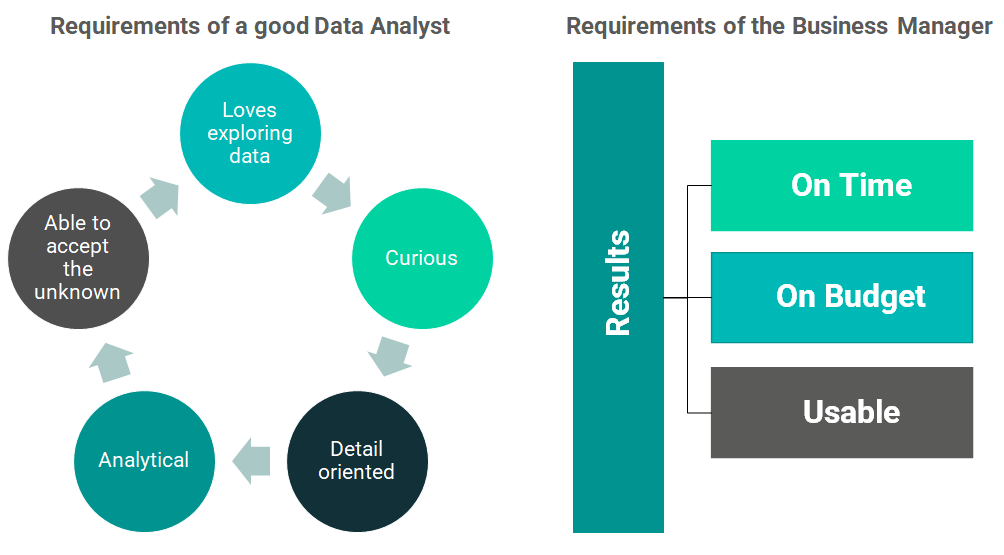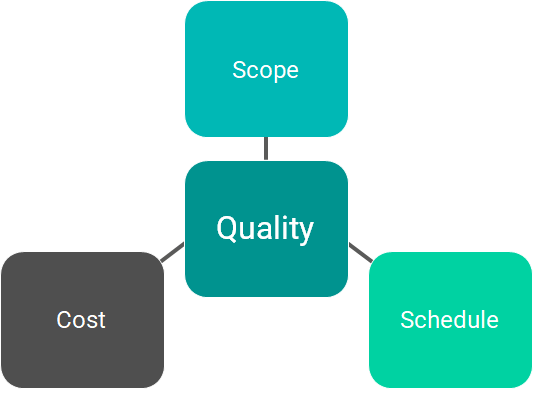Articles
The Importance of Project Management in Analytics Engagements
One of the most important elements of any data analytics project within any business is Return of Investment. A business owner wants certainty of delivery and needs to know that the project will achieve the best results for the business. There are many instances where analytics projects have run significantly over budget both in terms of cost and duration. There have also been situations where good analysis has been done but is then not used by the business in their day-to-day operations. Neither of the above provides good return of investment. We believe that the solution to these issues can be achieved through good Project Management.
Why do issues arise?
One of reasons is due to the different characteristics that typify the personality traits of good data consultants and business stakeholders who are the typical owners of data analytics projects. Both operate from different perspective although both want good results from the data under review.

These critical differences can lead to significant challenges both for the business owners who want certainty of time and budget, and for analysts who need space to allow their natural curiosity to examine information and produce the best results.
The Solution
I have found that the best way to manage the challenges outlined is to incorporate Project Management into the solution. This ensures that you provide a comprehensive communication channel between the business stakeholders and the data analysts. The discipline of Project Management ensures effective communication and agreement at all phases of the analytics project. It retains a focus on value and control. It ensures that the process respects the iterative nature of data analytics projects while managing the risks associated with them.
How does Project Management Help?

The major elements of Project Management are Initiation, Planning, Supporting Execution, Monitoring & Controlling and Closing, all of which are underpinned by constant communication. Communication between the analysts and the business owners ensures that there is clear understanding at all times of the phases of the Data Analytics project. Communication to ensure that the business stakeholders understand the outcomes of the results produced and that they can use them into the future. Communication to make sure that there are no surprises at the end of the project for any stakeholder.
In analytics projects these elements are critical at all phases of the CRISP-DM (CRoss-Industry Standard Process for Data Mining) process. Project Management ensures that the business stakeholders do not change the principal aim of the analytics outcome. It ensures that the analysts remain attentive to the tasks at hand to retain the focus of the project. It allows managed changes to the project by either the business stakeholders or the analysts. It allows management of risks through the use of the Action and Risk Log to clearly articulate issues that arise during the course of the project. It has to be flexible to allow for the iterative nature of the analytics project without allowing the project to go out of control.
Project Management ensures communication between the business stakeholders and the project team and allows for the constant monitoring of the project to discuss the ongoing status of the project and to highlight and agree both risks and changes. It ensures engagement by all stakeholders so that the project is successful from the business perspective and that it transitions into the Business as Usual life of the company. It ensures that the project stops at the point of solution resolution – good is good enough – thereby ensuring good Return on Investment for the business.
The Question for all you analysts (and business people out there)
In larger projects, can Analysts successfully perform the role of Project Managers and manage their own projects or do they need the discipline of a separate Project Manager?
Version 1’s experienced consultants are on hand to help you understand your SPSS needs – from consultancy and training to finding the best software and license type for your analytical and usage requirements. Contact us to discuss your requirement and identify the best SPSS solution for you.
Related Articles
Take a look through our SPSS Articles covering a broad range of SPSS product and data analytics topics.





